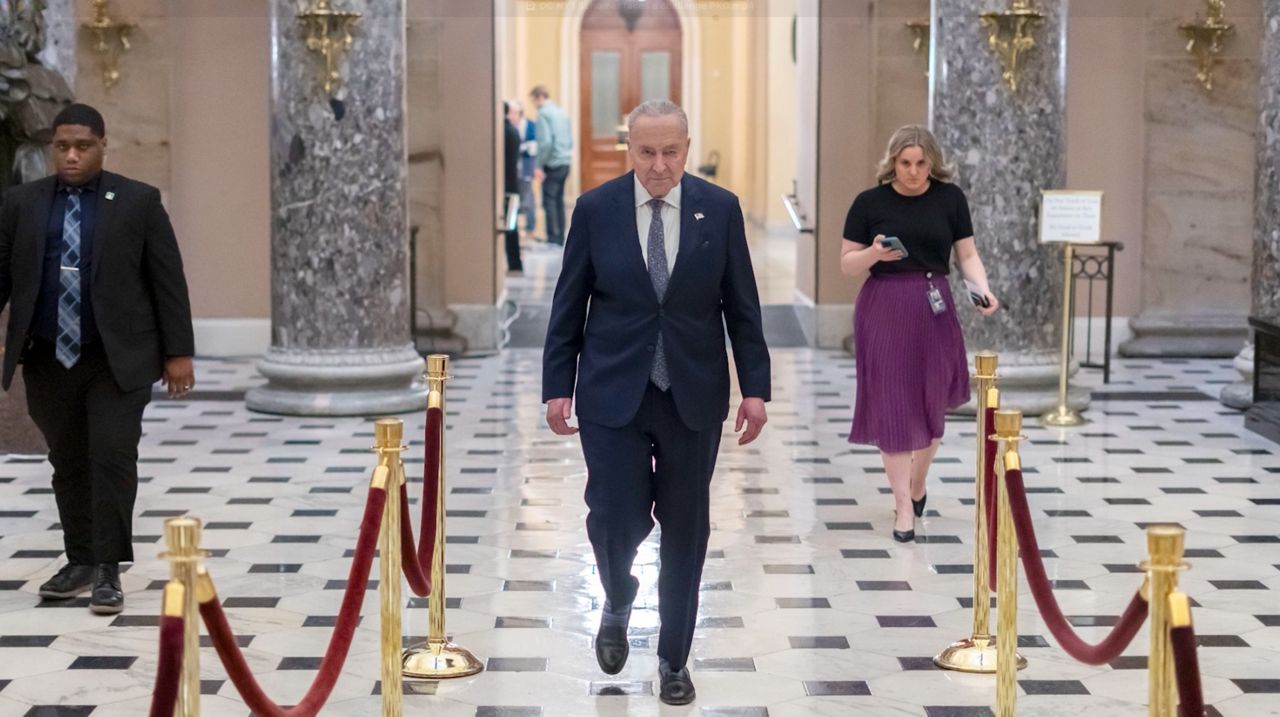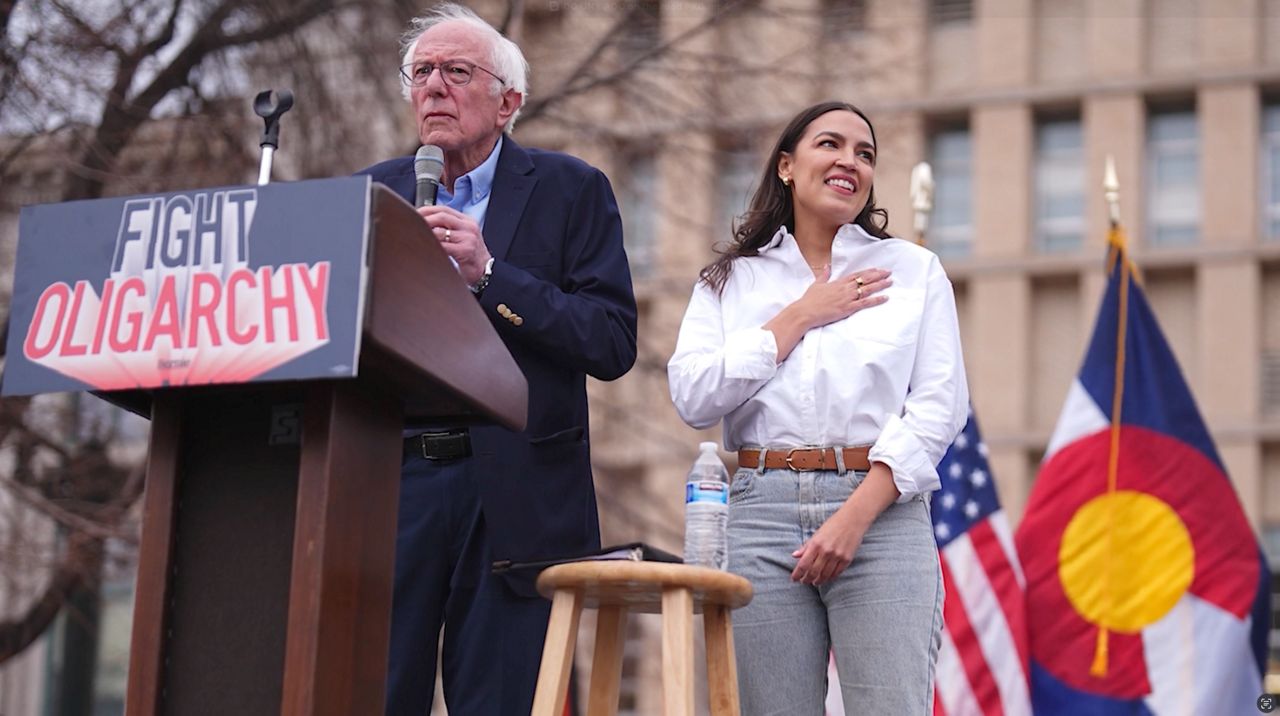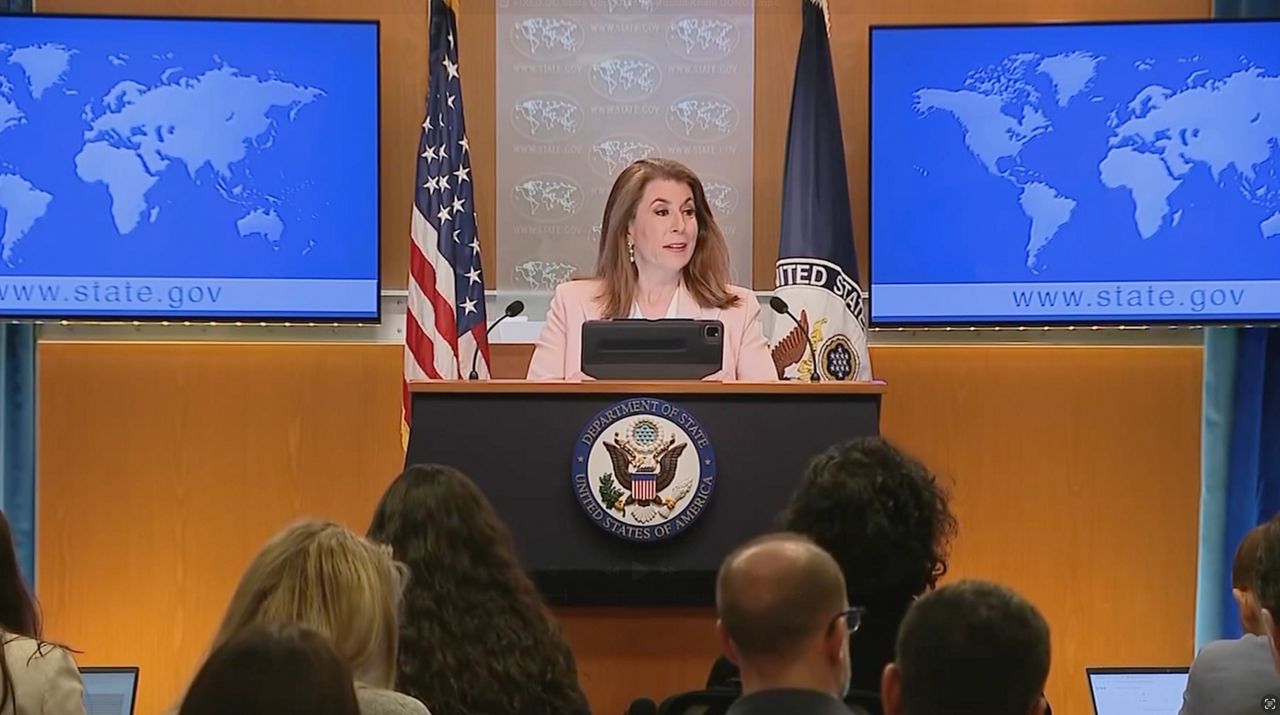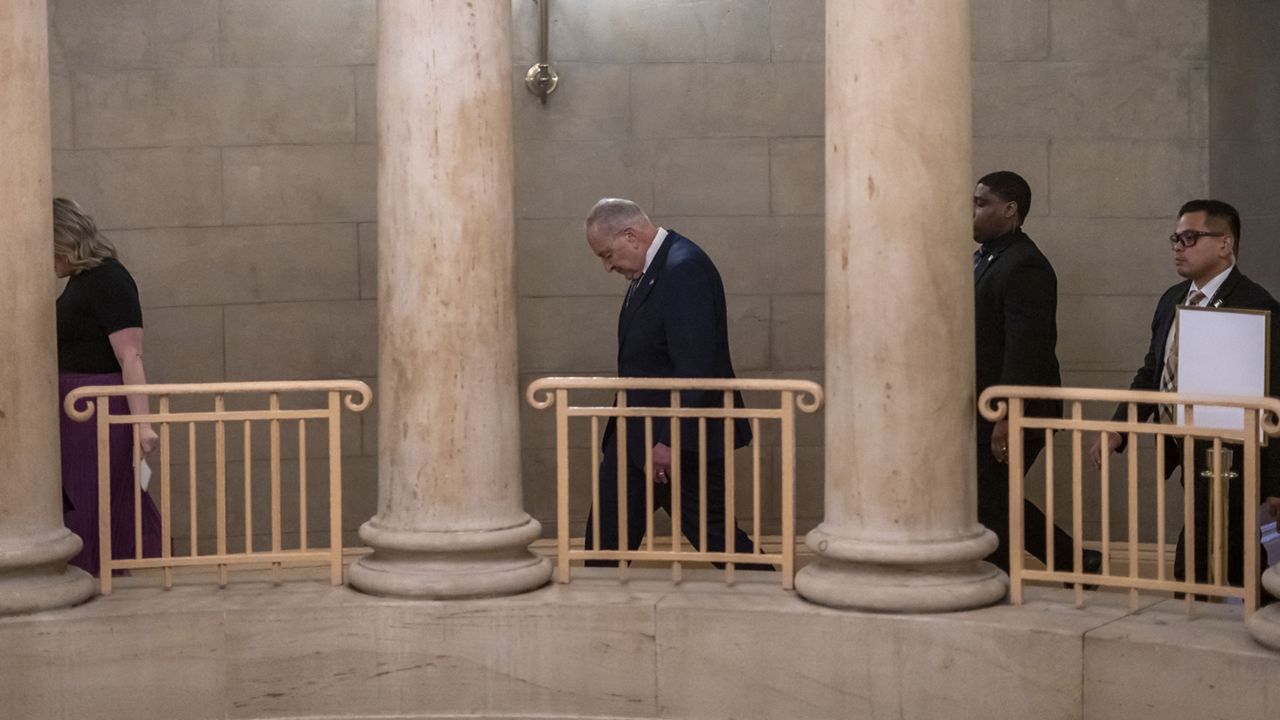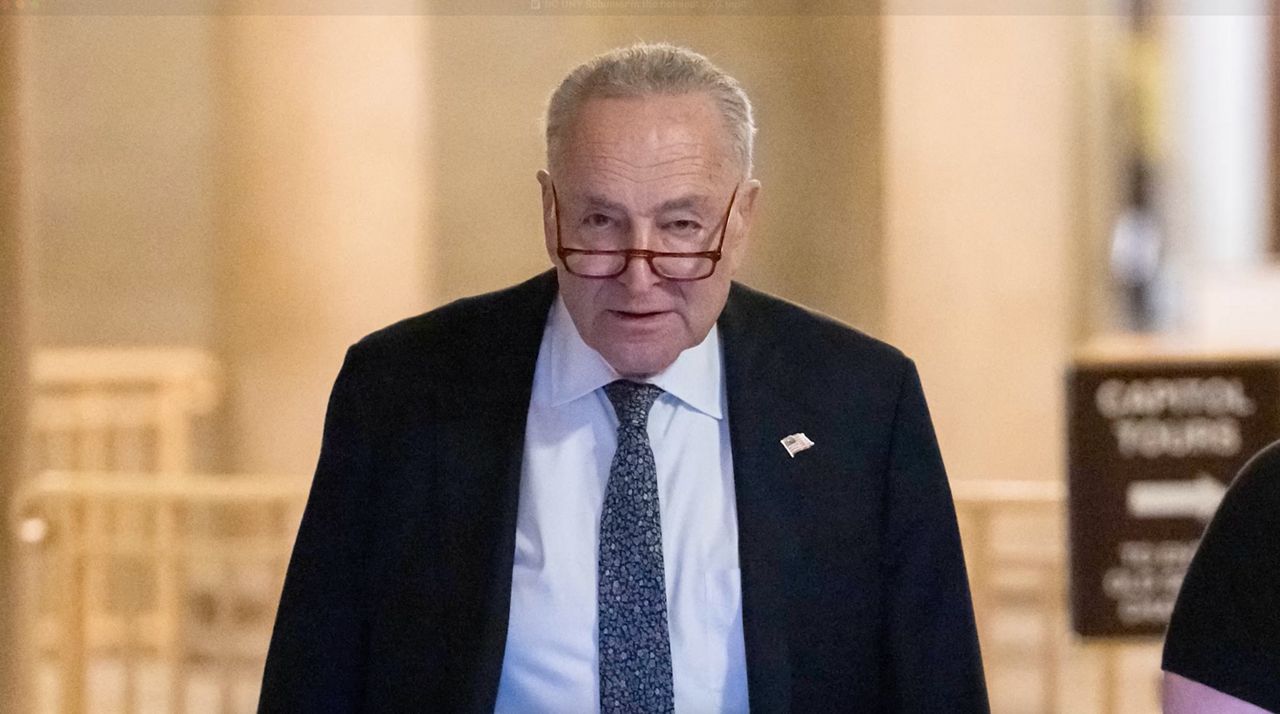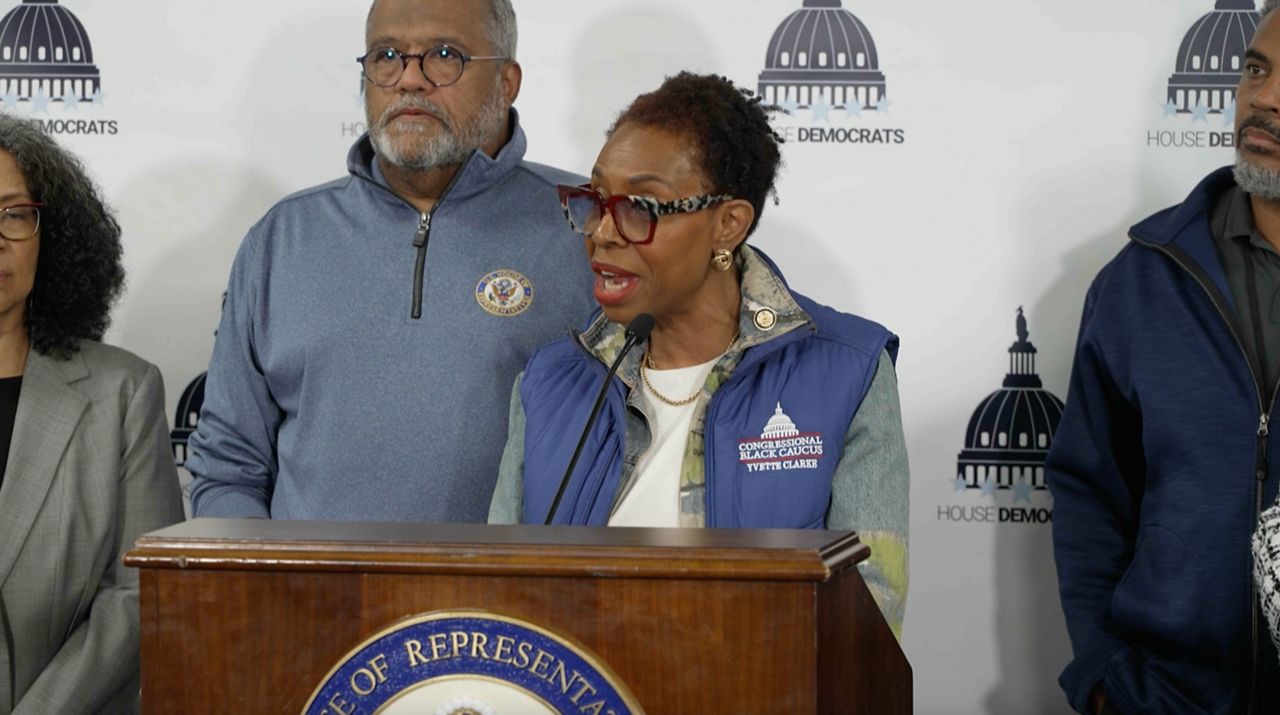President Donald Trump’s decision to pardon more than 1,500 Jan. 6 defendants, including those convicted of violent crimes, has been met with criticism from New York Democrats on Capitol Hill. Some Republicans are also raising concerns.
Trump issued the sweeping pardons within hours of taking office.
On the campaign trail last year, he promised to grant clemency to many of the Capitol rioters, but it was never clear if that would include those accused of attacking law enforcement
At a Wednesday press conference, Rep. Dan Goldman condemned the pardons while standing alongside some of the law enforcement officers who were on duty on Jan. 6, 2021.
“You cannot say you back the blue if you are going to let out of jail violent criminals who assaulted the blue,” the Manhattan and Brooklyn Democrat said.
In a separate interview, Rep. Alexandria Ocasio-Cortez blasted Trump's decision to “unleash” the violent defendants, labeling it an act of “political intimidation."
Four years ago, the rioters aimed to block Congress from certifying Joe Biden’s victory in the 2020 election.
At least three dozen New Yorkers were charged. Some pleaded guilty. Others were convicted.
Those defendants include former NYPD officers and the son of a New York City judge. Prosecutors accuse the New York defendants of everything from assaulting law enforcement to directing rioters to theft.
One of the defendants is Brandon Fellows from the Schenectady region, who was convicted by a jury in August 2023. He was photographed smoking pot in a senator’s office on Jan. 6.
Asked earlier this month if he had any regrets about what happened in January 2021, he told Spectrum News, “One of two options: If I could convince people to partake in a real insurrection, because that wasn't one, I would do that. I think that would save more lives in the long run.”
“But more realistically,” he continued, “if I could go back knowing all that I know, I'd like to warn people, ‘Hey, it's a giant setup. They want this to happen.’”
Republicans from some of New York’s more competitive congressional districts did not jump to defend Trump.
Hudson Valley Rep. Mike Lawler said he “disagree[d]” with pardoning violent offenders, while noting the president campaigned on granting clemency and "has the right to do that."
Suffolk County Rep. Nick LaLota said the move “concern[ed]” him.
Asked what he would say to local police officers back home regarding the president pardoning those that attacked law enforcement, LaLota said, “Presidents and governors have tremendous power in that pardon power. And I think if you hit a cop, I think if you cross other lines and endanger public safety, you should do your prison time.”
“We’ve seen state governors, presidents go further than a lot of members of Congress would go,” he continued.
In response to questions about the pardons, though, both LaLota and Lawler also quickly pivoted to invoke former President Biden’s preemptive pardon of his siblings and their spouses before leaving office.
Lawler also cast Democrats as weak on crime, saying, “It's the Democrats in New York, for instance, who have put forth a disastrous cashless bail law that has allowed people who have assaulted cops to walk right out the door.”
Some other congressional Republicans, including at least one in the New York delegation, ducked the issue of Trump’s pardons or claimed they did not know enough of the details to comment, echoing a common response to questions about Trump during his first term.






